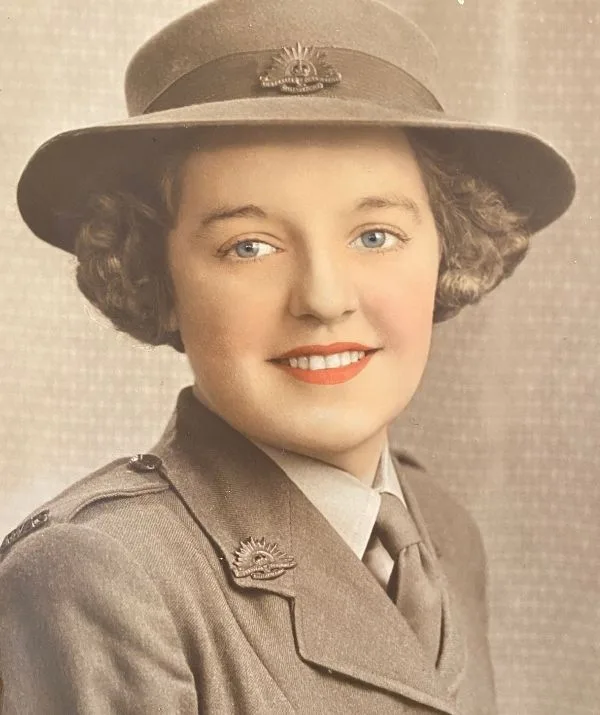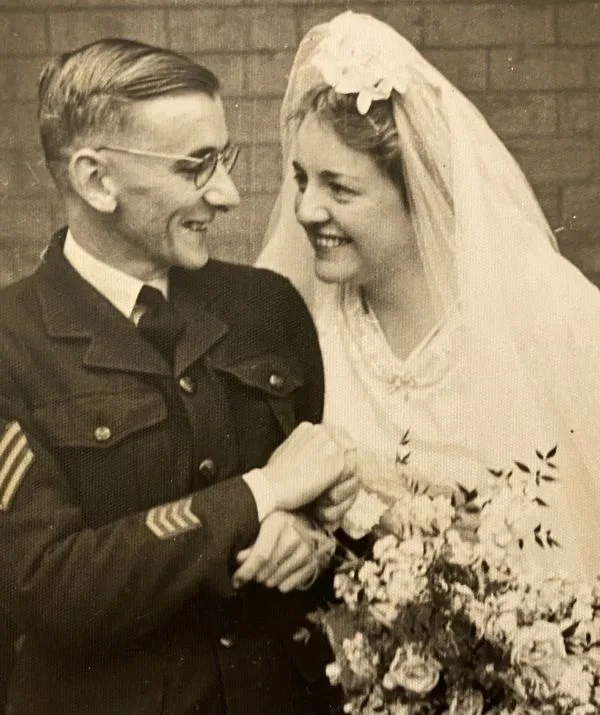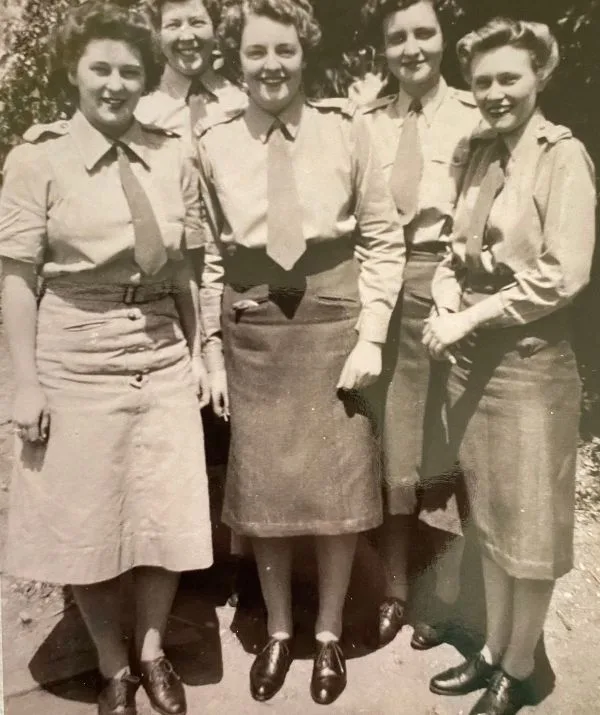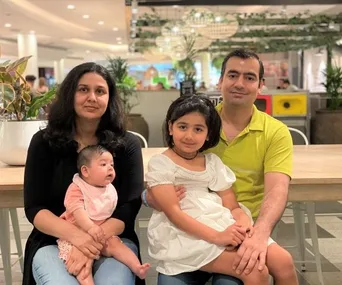It is hard to believe now, but Coral Hinds never felt her work as a WWII cypher operator was remarkable.
“Really, we didn’t know what was happening. We went in and we did the job,” Coral tells Woman’s Day from her home in Frankston South, Victoria.
“We weren’t doing any of the messages. We just got them in on the machines, on the Typex and when they came out, we’d stick them down.”
But despite her modesty, Coral was in fact a highly skilled and essential war worker.
Along with her mostly female colleagues, she helped receive, decode and translate Japanese radio transmissions.
“There were some very important messages but we didn’t always know how important they were,” she explains. “It was just a fun place to work.”
Coral, 96, was one of Brisbane’s “Garage Girls”, self-named because they worked in a tin garage that housed the Typex rotor machine, similar to the famous Bletchley Park codebreaking system.
READ NEXT: FOUND! The best Anzac biscuit recipe of all time

Coral joined the Australian Women’s Army Service in 1943.
(Image: Supplied)The garage was at the back of grand Nyrambla manor in the leafy Brisbane suburb Ascot. It was the wartime headquarters of Central Bureau, the joint US-Australian signal intelligence organisation.
While their work helped win the war for the Allies, for years Coral and her friends remained tightlipped about their roles.
“We had to keep it secret, I just used to say that I worked in signals,” says Coral. “We couldn’t tell anybody and I can’t remember my parents even asking.”
Nearly 76 years after V-J Day, Coral and the other Garage Girls are now immortalised in Alli Sinclair’s new novel, The Codebreakers. The Geelong author hopes fictionalising their experiences will help spread the word about Coral and her colleagues’ wartime achievements.
“What surprised me most was this story hadn’t been told before,” says Alli. “So to be able to help their legacy live on and develop some special friendships with these amazing women has been a joy.”
For Coral, however, there was one special person in her life who always knew her wartime secret – her husband Sandy, who also worked in cypher.
Coral met Sandy on her first day as a Garage Girl, in April 1944, having been a part of the Australian Women’s Army Service for a year by then.
“He just had the loveliest nature,” Coral recalls.
“I was the get-up-and-go girl and he was my calm. We just hit it off.”

Coral and Sandy on their wedding day in 1945.
(Image: Supplied)Coral and Sandy only went out twice before his wireless unit was posted to South-East Asia. But they kept in touch using a cypher department trick of padding out messages sent between the field offices with their own communications.
“It was a trick to fool the enemy,” explains Coral, “by putting something else in between the main message.”
The courting couple also wrote long letters, which were always checked by censors to ensure wartime secrets weren’t being inadvertently passed on.
On October 20, 1944, one very special letter managed to bypass the censor officer.
“He asked me to marry him,” Coral says. “And we’d only been out together twice!”
Coral said yes immediately – although she’s not sure how.
“I must have put it on one of the messages, but I can’t remember!” she laughs.
The couple decided to marry as soon as Sandy was back from his posting, which was in the following May when he was sent home due to illness.
“He was terribly sick – his skin was a mustard colour because he had jaundice and hepatitis and hookworm and goodness knows what else,” Coral remembers.

Coral and the other Garage Girls helped win the war.
(Image: Supplied)Despite Sandy’s frailty, the couple married on June 2, 1945.
“I had a borrowed dress – I was the third bride to wear it. I could have got married in uniform and sometimes I think it would have been nice, but I wanted to be a bride,” says Coral. “It was a happy, happy day.”
The couple were married for 62 years until Sandy died in 2007 at age 85. There had four children together, and now have 11 grandchildren and 12 great-grandchildren.
In 2009, the Garage Girls received the Bletchley Park commemorative badge from the UK government for their vital service. Around the same time, Coral applied to the Australian department of defence for Sandy’s war medal.
“He was there and I had his airforce number. I filled it in and his came in the post,” Coral says. “He earned it. It is very special.”

